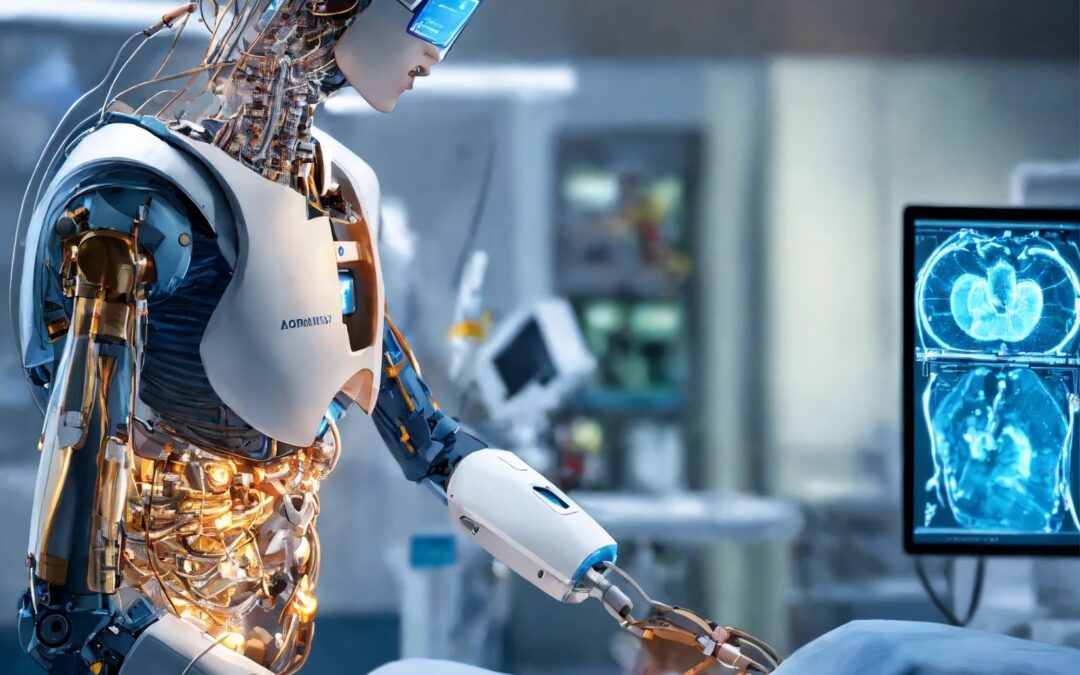Introduction to AI in Healthcare
Artificial Intelligence (AI) has emerged as a transformative force in healthcare, with the potential to revolutionize the way we diagnose, treat, and manage patient care. AI refers to the development of computer systems that can perform tasks that typically require human intelligence, such as learning, problem-solving, and decision-making. In the context of healthcare, AI encompasses a range of technologies and approaches, including machine learning, natural language processing, computer vision, and robotics.
The integration of AI in healthcare offers numerous potential benefits, including:
1. Improved diagnostic accuracy: AI algorithms can analyze vast amounts of patient data, including medical images, lab results, and clinical notes, to identify patterns and anomalies that may be missed by human providers. This can lead to earlier detection of diseases, more accurate diagnoses, and personalized treatment plans.
2. Enhanced decision support: AI-powered clinical decision support systems can provide healthcare providers with evidence-based recommendations, alerts, and reminders at the point of care. By leveraging the latest clinical guidelines and research findings, these systems can help providers make more informed decisions and reduce variability in care.
3. Increased efficiency and cost savings: AI can automate routine tasks, such as data entry, appointment scheduling, and billing, freeing up healthcare providers to focus on higher-value activities. AI-powered tools can also optimize resource allocation, reduce waste, and improve operational efficiency, leading to cost savings for healthcare organizations.
4. Personalized medicine: AI can enable the development of personalized treatment plans based on a patient’s unique genetic profile, medical history, and lifestyle factors. By analyzing large datasets of patient outcomes and treatment responses, AI can help identify the most effective interventions for individual patients, leading to better outcomes and reduced side effects.
5. Drug discovery and development: AI can accelerate the process of drug discovery and development by identifying promising drug candidates, predicting their efficacy and safety, and optimizing clinical trial design. AI-powered tools can also analyze real-world data to monitor drug safety and effectiveness after market approval.
6. Remote monitoring and telemedicine: AI can enable the development of remote monitoring systems that can track patient health data in real-time, alerting providers to potential issues and enabling timely interventions. AI-powered chatbots and virtual assistants can also provide patients with personalized health information, triage symptoms, and facilitate remote consultations with providers.
Potential applications of AI in healthcare span a wide range of specialties and care settings, including:
1. Radiology and medical imaging: AI algorithms can analyze medical images, such as X-rays, CT scans, and MRIs, to detect abnormalities and assist radiologists in making more accurate diagnoses.
2. Pathology and laboratory medicine: AI can automate the analysis of pathology slides and lab results, improving the speed and accuracy of diagnostic testing.
3. Oncology: AI can assist in the early detection of cancer, predict patient outcomes, and optimize treatment plans based on individual patient characteristics.
4. Cardiology: AI can analyze electrocardiograms (ECGs) and other cardiac data to identify heart rhythm abnormalities, predict the risk of heart failure, and personalize treatment approaches.
5. Mental health: AI-powered tools can assist in the diagnosis and monitoring of mental health conditions, such as depression and anxiety, and provide personalized therapy recommendations.
6. Surgery: AI can assist surgeons in planning and executing complex procedures, such as robotic-assisted surgeries, and predict post-operative complications.
While the potential of AI in healthcare is vast, there are also significant challenges and ethical considerations to address. These include issues related to data privacy and security, algorithmic bias and fairness, regulatory oversight, and the need for human-AI collaboration and trust. As AI continues to evolve, it will be essential to develop robust governance frameworks and ensure that the deployment of AI in healthcare is guided by the principles of transparency, accountability, and patient-centeredness.
by Dr. Jose A. Cisneros, MD,PhD


Recent Comments